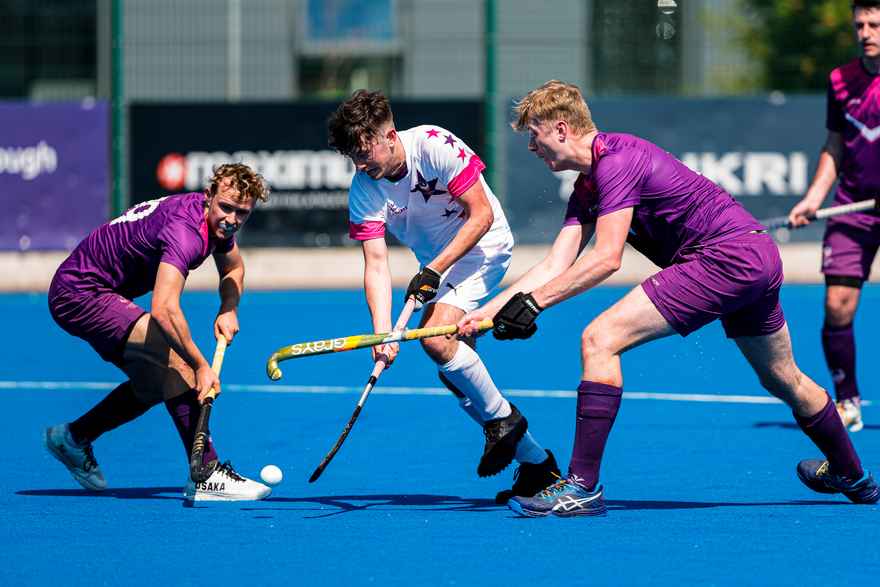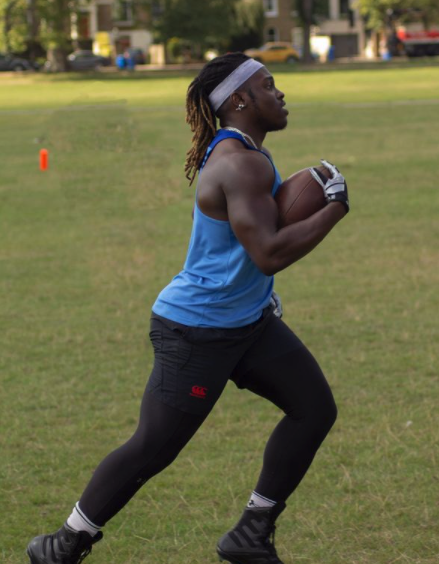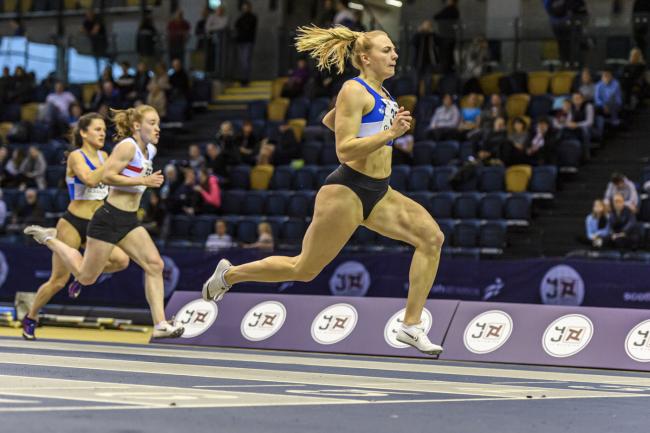
📸 by Jodi Hanagan
Living with athletes may come as a no-brainer to some, to others it might be their worst nightmare. Just like anything, it is important to consider the pros and cons, with these differing from person to person. Drawing on honest first-hand experiences/opinions from a number of athletes, this article will look into the pros and cons of living with athletes or not.
My experience of living with athletes has been pretty straightforward, I can't lie. For someone who loves all things sport a lot of the "problem areas" to living with other athletes are not an issue. I lived in an all-athlete block in my first year of university and it was fantastic, it gave me a chance to get to know a whole host of like-minded people from varying sports and walks of life. It was intense at times don't get me wrong, not being able to easily have a break from a sporty conversation, or an environment where everyone is exhausted from training can be difficult to "switch off" and draining to be exposed to at times.
My advice to anyone, have balance. Balance is key in all things in life; you need to be able to let your hair down and escape from the norm every once in a while. Do things which make you happy. If you are not happy, things need to change. Put your happiness first.
 My housemates and I 2020
My housemates and I 2020
Tyrese Johnson Fisher speaks about his experiences living with athletes during his time at Coastal Carolina University. He explains how important living with likeminded people is for social and training balance.
Overall, I would say living with other athletes is very positive. We got up at similar times in the morning for training which was nice. I lived with Soccer players so we got really close; I would watch them and they'd watch me, alongside spending time with the boys to watch all the games, it was so fun! We had our own rooms basically like a flat, which helped give me my own space and with a balance between football and soccer, to be honest.
Athletes aren't always up late like some other students, it's not every day partying. Besides the athlete-related smell at times, being around like-minded people is very positive; it gave me a balance and you could do loads together. I prefer living with athletes 20x more".Tyrese Johnson-Fisher, Former Garden City Running Back & Former Bristol Bears Winger

Alisha Rees explains the importance of separating sport and personal life and how she managed this whilst studying and training as a national record holder.
For me personally, I’ve never wanted athletics to take over my life. I’ve always envisioned having almost two lives a sport one and a non-sport one. and I knew that if I lived with athletes I’d find it so hard to separate the two. It’s allowed me to enjoy the best of both worlds. And it means I have friends outside of sport as well which I think living with athletes almost makes it hard to do. Also if you have a bad training session or competition there’s no escape. You could be going back to a house where everyone is doing amazing in their sports. Whereas coming home to non-athletes means I don’t have to worry or dwell on the bad spell and I can enjoy time with friends as any other young adult would.
There is always the concern that living with non-athletes means they don’t understand the lifestyle. Which is true but at the same time my friends at uni were very understanding. They would never pressure me to go out instead when I did come out it was almost like a treat for everyone! Like "no way Alisha is out let’s make it a good one" and it just made going out and doing stuff more enjoyable.
Overall I think athletics and sport doesn’t last forever. And there should always be a space between being an athlete and being a normal person. And so living with no athletes allowed me to get this balance perfect.Alisha Rees, Student & Scottish 60m Record Holder

Melissa Courtney-Bryant shares her experiences on meeting people with similar routines across all sports in University halls - Oh... and her husband.
In life and in sport you should surround yourself with likeminded successful people. Learning from successful athletes can help raise your game and likewise sharing your own experiences can help those around you. Sharing good habits and similar lifestyle with those you live with can bring out the best in you and I certainly felt this was the case for me.
Throughout my years at university, I lived with so many different athletes, not just athletics but other sports too. I lived in a sports flat at Brunel University for 4 years, which meant I lived with predominantly sport scholars or others who competed in sport and our halls were right next to the indoor track & gym. During this time I lived with: a decathlete (who would become my husband 8 years later!) endurance runner, javelin thrower, sprinters, triple jumper, netball player, rower, canoeist & taekwondo fighter.I absolutely loved living with athletes, not only did we share the same interests, we also had similar routines of early morning or late evening training; which meant we could socialise more together compared to non-athletes whose routines would be different. This allowed us to cook meals together or go out and we would often have similar days off too. We would also be competing on the same days or at the same events like BUCS so this meant we could have parties & celebrate together too!
I honestly had the best time living with other athletes at university and would definitely recommend it; I met some really good friends and of course, I met my husband Ash!Melissa Bryant, New Balance Athlete & Multiple International Medalist.
Molly Scott, established Irish international, gives an in-depth description of the pros, cons and tips for living at home during University whilst training as an elite athlete. Such as the importance of independence and the learning of life skills, despite living at home.
Pros of living at home as a student-athlete.
My house is always warm! One thing I’ve definitely noticed in student houses is that they are always freezing, I couldn’t cope. An advantage to living at home is I constantly have nutritional guidance or someone keeping an eye on my mental state. Athletes sometimes suffer in student accommodation as they don’t always have someone there to talk to. Living at home has much fewer expenses. Therefore, a job isn’t always necessary which allows for more time to train or study. My meals are home-cooked and often ready post-training, important for battling post-session hunger! My house is quiet and comfortable. I don’t have to worry about noise or untidiness from other people. Living at home has a very comfy and homely feel.Cons of living at home
Living at home means you may not be as equipped with necessary life skills such as cooking, cleaning and finances etc. You don’t spend as much time with people your own age or around those who are trying to live the same lifestyle as you. I have to travel to university or to training which can hinder my recovery. You don’t have as much freedom as you may living alone.My tips for living at home
Try not to rely on your parents too much if you are living at home in your early 20s. It’s important to play a part in your house such as cleaning and the cooking. These are not things that you want to have to learn as someone in their late 20s. Take your parents advice and let them help you, they have been around a lot longer than us. Find time for yourself and have your own space. This is important. My last tip is to learn how to drive, this allows you to have your own freedom and to not have to constantly rely on your parents for everything"Molly Scott, Student & Irish International Athlete.

Alex Haydock-Wilson is a 400m student-athlete at Loughborough University. He talks openly about the significance of feeling comfortable in your own home, giving advice and experiences of his own whilst living with athletes.
My experience with living with athletes has been mostly positive; while I understand the pros and cons may weigh more or less depending on the individual. As an athlete myself specialising in the 400m, I have lived with athletes from a variety of sports including Rugby, Hockey, Rifle Shooting, Triathlon, horse riding and Para sports. The most inspiring part is being able to find common ground while also learning about the many differences across sports. The diversity I consider very important, as it mixes up the conversations and most importantly means you never feel judged in your home setting.
One of the hardest things to deal with as an athlete are self-esteem issues that stem from injury, poor performance or stagnation. Having people who understand that but in a very different context helps you feel heard, without the feeling of alienation you may feel from a friend in the same event who is doing better than you.
Sometimes the best thing to have is a distraction. Whether that involves discussing a different sport or a different subject entirely; discussing topics that take you away from the issue at hand can help you approach the problem with a fresh approach and positive attitude".Alex Haydock-Wilson, Student & Great Britain 400m Runner.
Living With Athletes, Yes or No?
Written by Joe Fuggle
If you would like to collaborate, get in touch on socials, or at info@theathleteplace.com.



 📸
📸
Comments